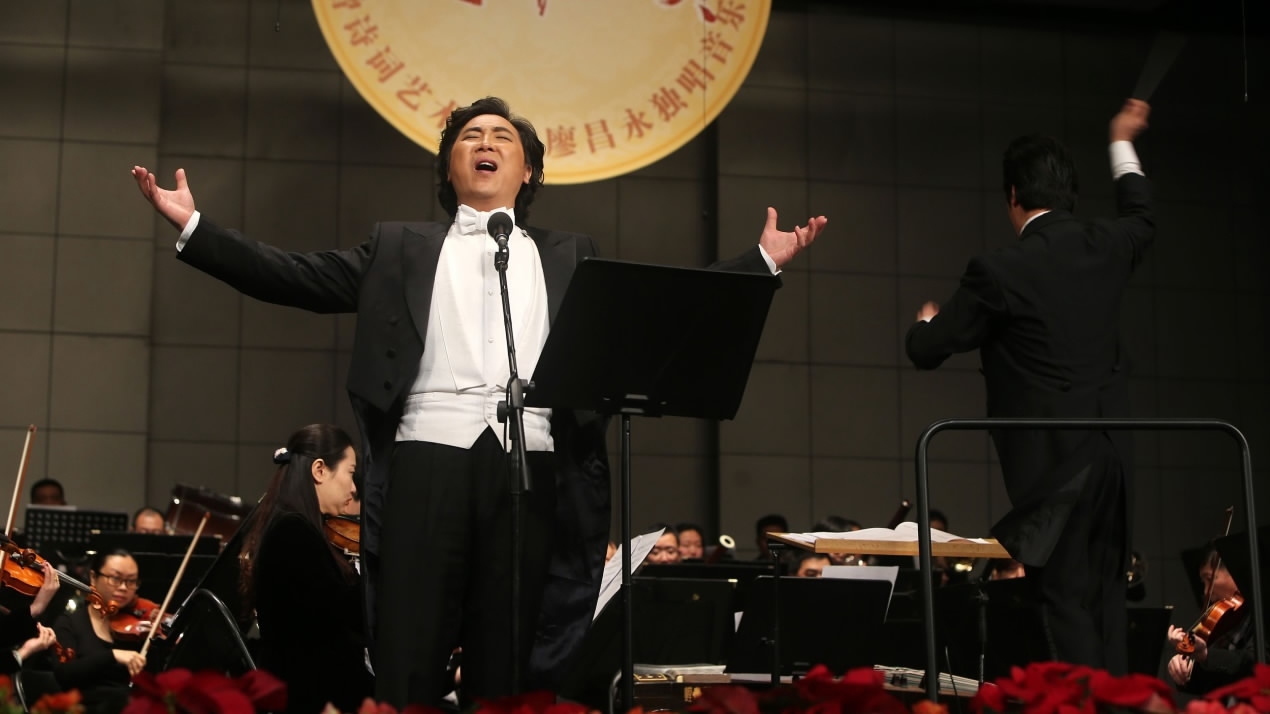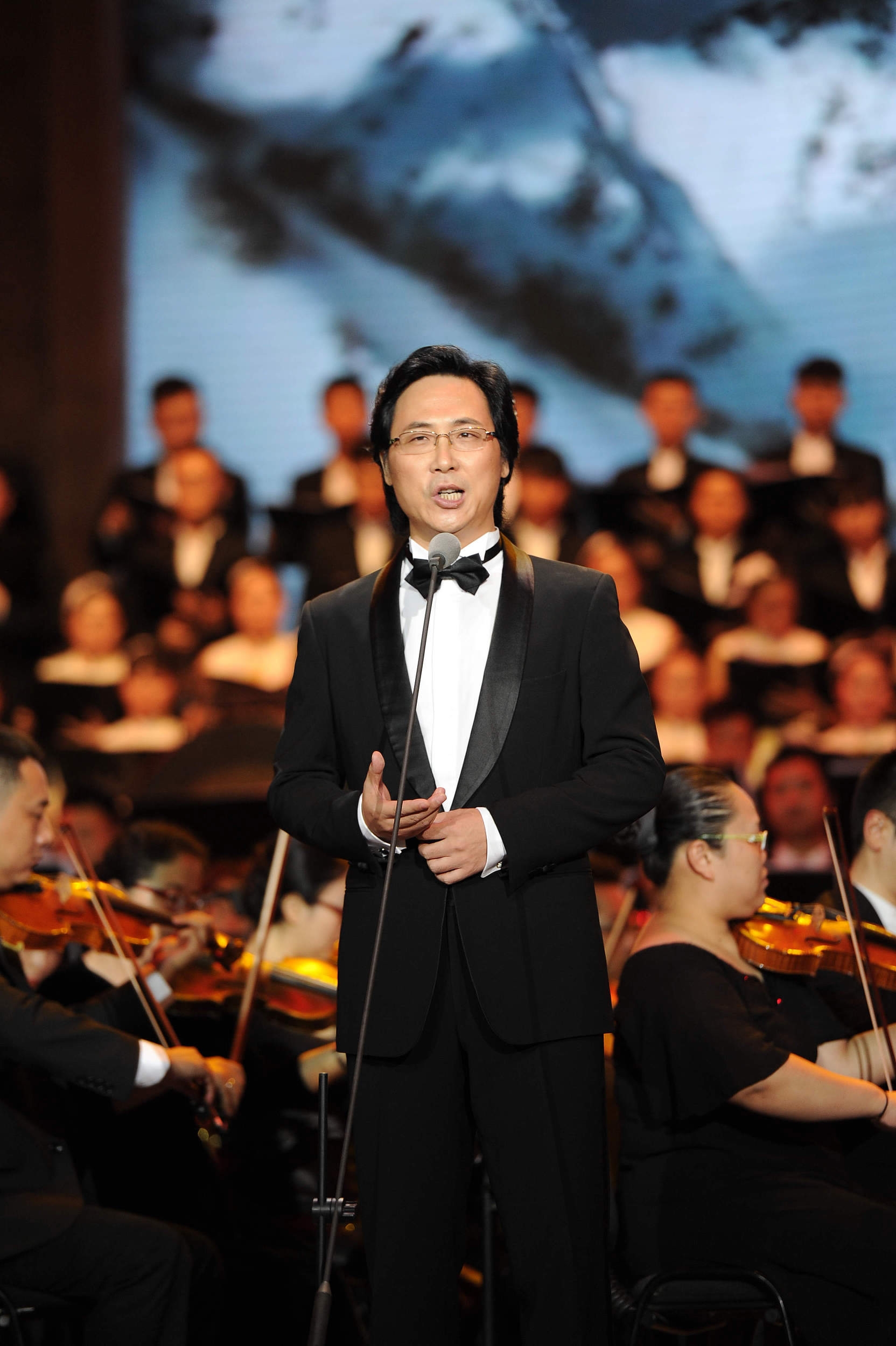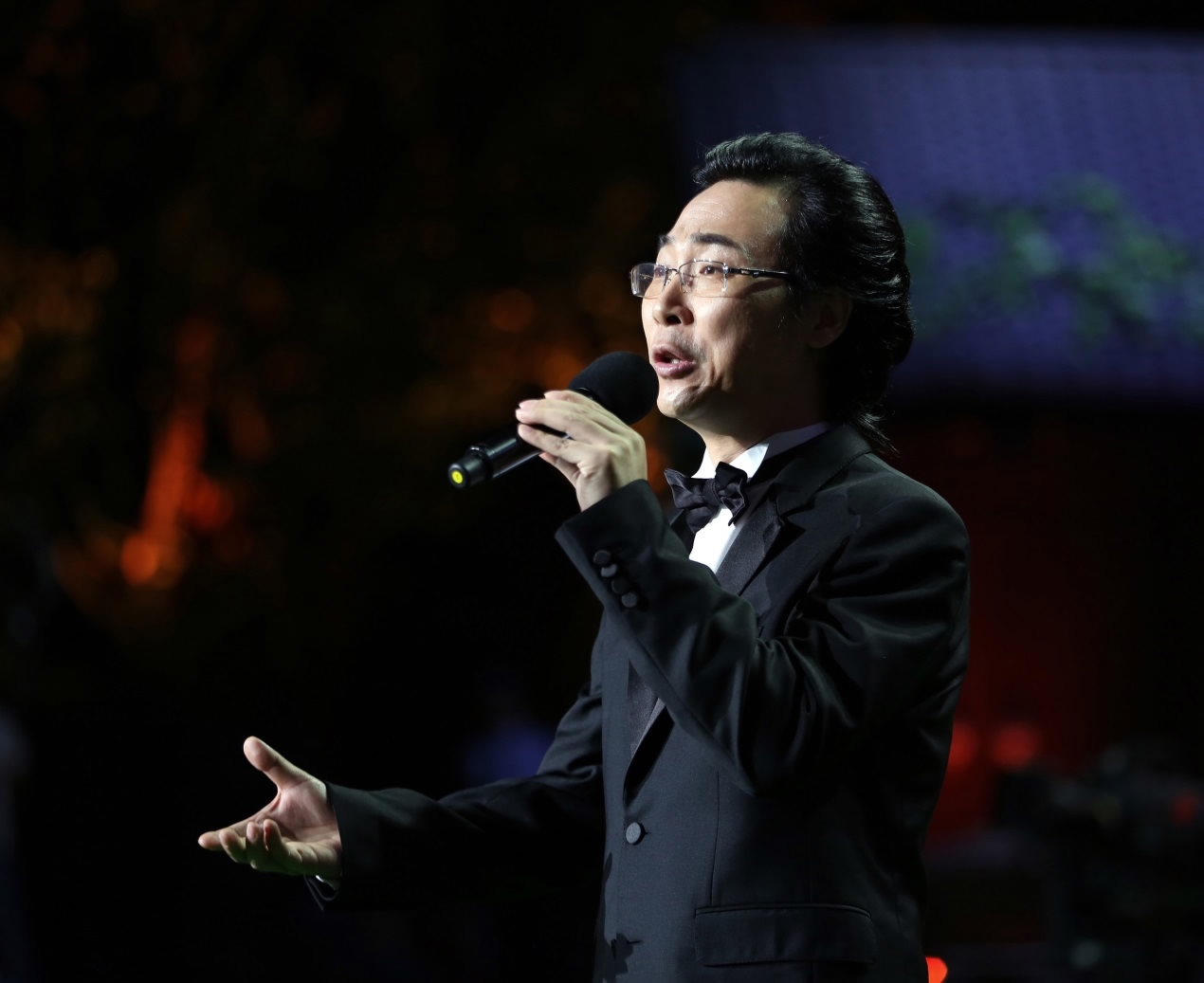
Culture
16:24, 21-Dec-2017
Accomplished baritone opera star seeks guidance in cultural policy
By Wang Wei

Liao Changyong is one of China's most renowned opera singers. After launching his stellar career and winning a string of international singing prizes, the baritone has become acclaimed both at home and abroad. Now at the prime of his career, Liao is seeking guidance and inspiration from the indigenous culture of China and the nation's cultural policy.
After his recent performances, Liao returned to the Shanghai Conservatory of Music, where he works as a vocal music professor. Teaching has allowed him to ponder opera's future in China.
In the mid-1990s, Liao won rave reviews for his rendition of western opera classics. Now, he's turning to his cultural roots.
Liao said: "When I was singing the Great River Flowing Eastward, I felt like the poet Su Dongpo. And with Man Jiang Hong, I just felt like the national hero Yue Fei. I felt I was straddling a saddle with a lance in my grip. I never had a problem becoming the character when portraying Chinese stories. They are in my blood."

/CGTN Photo
/CGTN Photo
The central government's cultural policy also proves a source of inspiration for Liao. He is elated to see the new prospects for Chinese culture which were envisioned in the report to the recent 19th National Congress of the Communist Party of China (CPC). As a practitioner of an art form imported from the west, Liao is eager to create China's own operatic classics with the indigenous Chinese culture.
"We are called upon to promote and spread Chinese culture," Liao said, "I believe we have to adopt innovative approaches and reinvent the old traditions. We have to integrate the world's best ideas into our time-honored culture. There has to be a virtuous interplay."
Liao's explorations have produced impressive results. Over the past five years, he has portrayed prominent cultural heroes of ancient China in a series of indigenous operas. While retaining the essential beauty of the artform, these new productions embody the values and spirit of Chinese culture. Liao believes that art should go beyond pure aesthetic enjoyment and provide moral lessons.
He said: "For example, in the opera Spring River, a patriotic youth, a very promising young man, betrayed his ideals and aspirations. He finally succumbed to corruption and was despised by society. It is a tragedy, and it is also a tale of caution for all of us. We must adhere to our principles and have faith in our ideals."
"Right now we are working on two productions. One is the life story of the Ming Dynasty writer Tang Xianzu. It's about the literary giant's devotion to his country and his culture. This devotion is the source of the greatness of his works."

/CGTN Photo
/CGTN Photo
Throughout his career, Liao has been an ardent proponent of Chinese culture. As the central government has committed itself to enhancing the nation's soft power and presenting all the facets of China, Liao is determined to help bring China's beauty to a wider audience.
Liao said: "We are leaving for an overseas tour in January. One of our top priorities is the presentation of Chinese elements. Our operas all feature some aspects of China's traditional music, either in the motif, the instrumentation, or the costumes and props. We've spared no expense in presenting the original feel and look of Chinese culture. That's how we tell the Chinese story."
Liao said: "Many foreign colleagues believe that the future of classical music is in China. The report to the 19th CPC National Congress further confirmed my belief that this is true. I'm looking forward to the flourishing of classical music in China. We are trying to present more overseas works in China. But at the same time, we are also bringing our indigenous operas to foreign music lovers. I am convinced that a Chinese style in opera will emerge and triumph."

SITEMAP
Copyright © 2018 CGTN. Beijing ICP prepared NO.16065310-3
Copyright © 2018 CGTN. Beijing ICP prepared NO.16065310-3